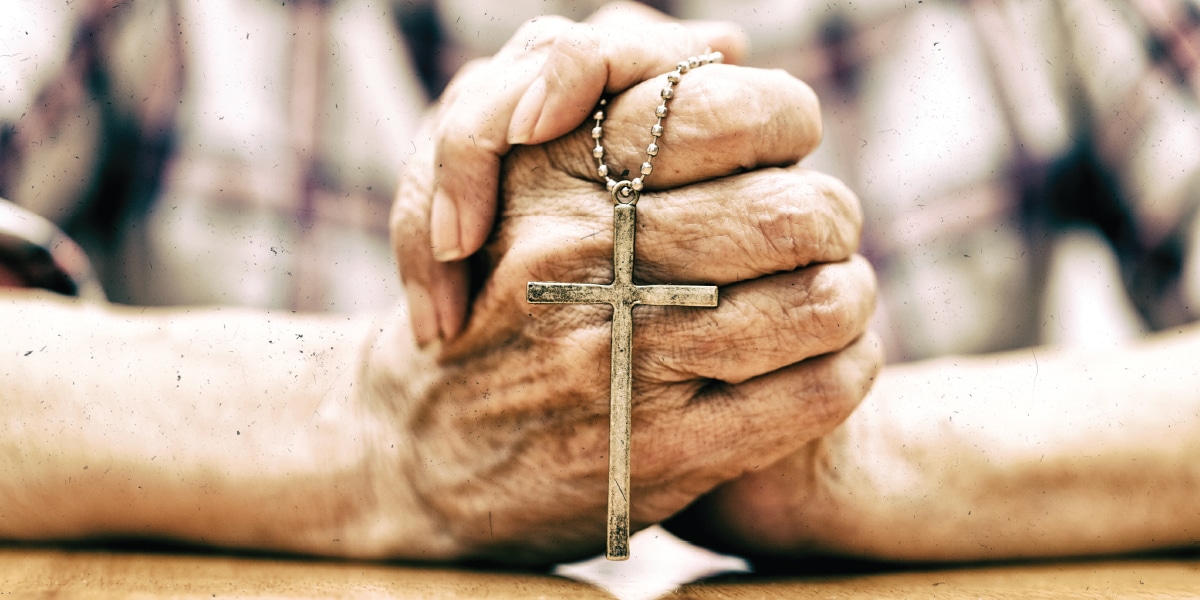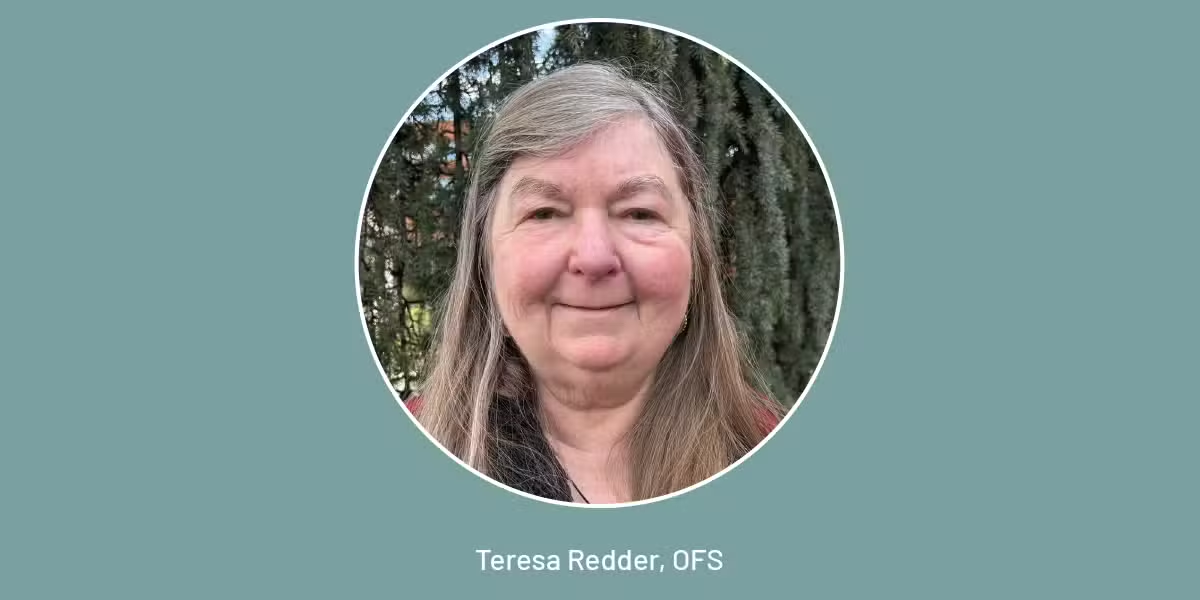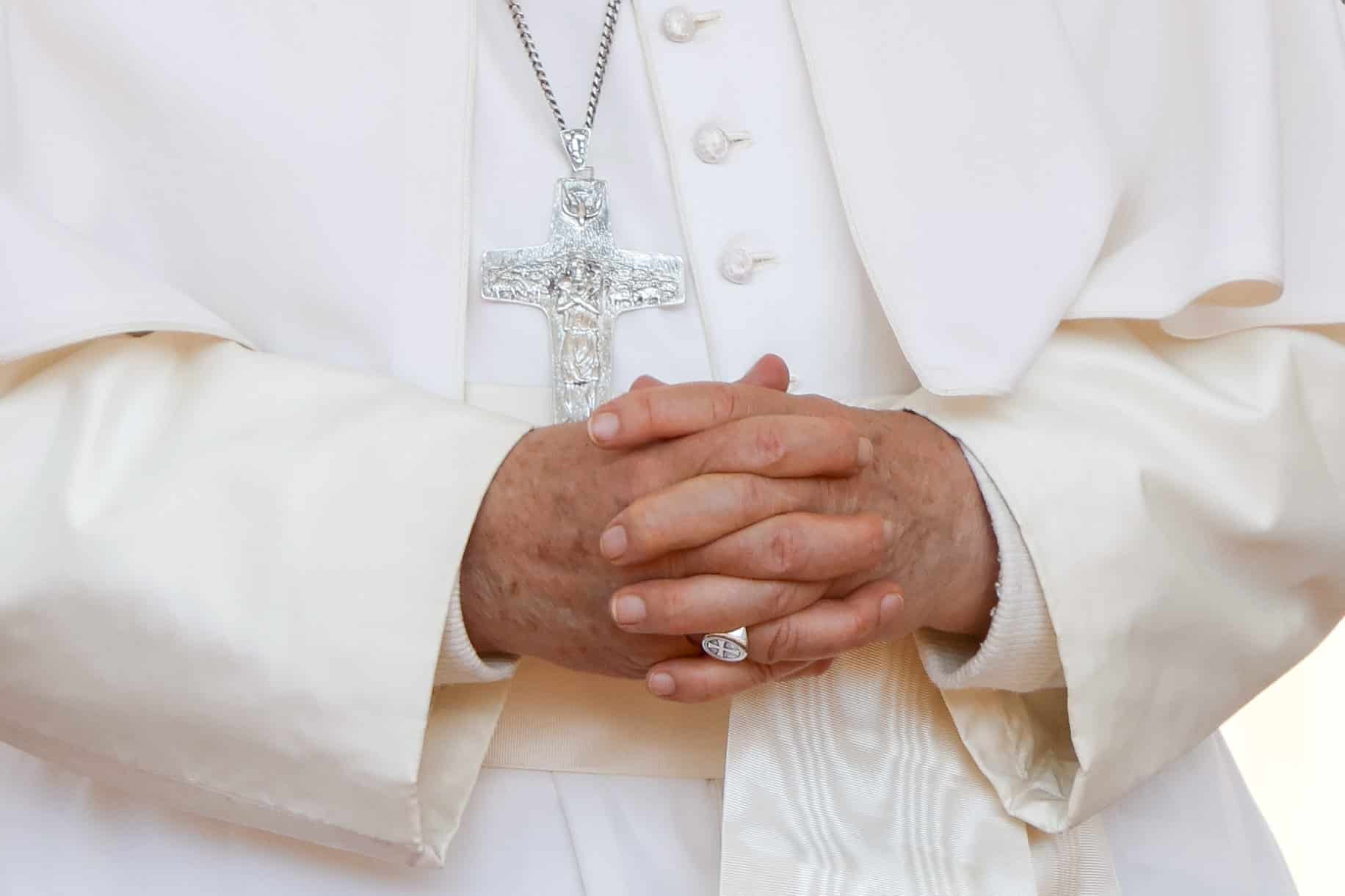St. John Paul II was fond of reminding the various groups of people to whom he spoke, “Be who you are!” Young people, married couples, and consecrated men and women throughout the world heard this important reminder. I first heard him speak these words at World Youth Day in Denver in 1993. It was an exciting time, one of great hope and promise, and his words struck at the heart of what so many of us too easily forget.
God calls each one of us to accept and live out the unique task he has entrusted to us. Our vocation therefore defines how we are to be in the world, forming and shaping every facet of our lives. Mother Teresa knew this well.
Often, when I was with her during her visits to the United States, someone would tell her they wanted to be just like her by going to Calcutta and caring for the poorest of the poor. Mother always had the same response: “Don’t come. There is one Mother Teresa. You must do whatever Jesus wants you to do, wherever he asks you to do it, and do it with great love. I am doing what Jesus has asked me to do.”
The inspiring lives of the saints can lead us to want to become just like them, but as Mother Teresa knew, their lives should instead encourage us to say yes to whatever the Lord asks of us. This is an extremely important lesson to learn right at the start. It is common that people eager to climb the heights of spiritual perfection often try to adopt a life of prayer they admire in someone else. Seminarians often fall into this temptation. In their eagerness to please the Lord, they often heap all sorts of burdens upon themselves that Jesus never asked them to carry.
I once led a day of recollection at a seminary, and I told the men in formation the following: “If after ordination you are planning to live off boiled potatoes and a little red wine, spending all your free time in the confessional of your parish church, don’t! We already have a St. John Vianney. What worked in 18th-century France will not work in the 21st century in the United States. Instead, why not become the saintly parish priest that Jesus wants you to become?”
Freedom in God
It is an essential and important truth of the spiritual life that God knows us better than we know ourselves. We are not in charge of who we should become! No matter how spectacular the person we have in mind, God defines each one of us. From all eternity, God has known the persons he created us to be and knows us better than anyone else. Our greatest responsibility is to allow God’s spirit to form us according to the divine plan. The full, abundant life Jesus promises will only come about to the extent that we become the person God wants us to be.
We must always yield to God. This is what it means to die to self. Only this will allow God’s work to reach its completion. Whenever we try to take control and tell the Lord who we think we should become, we end up discouraged and disappointed—maybe even resentful.
It does not bother me that I am not John Vianney, Padre Pio, Maximilian Kolbe, or Josemaría Escrivá. While I greatly admire the lives of holy women and men in our family of faith, I am not them—and they are not me. My singular hope is that the virtues that appeal to me in their lives might bear fruit within my own, as I become evermore the Fr. Gary Caster that God longs to have me be.
Personally, I find this wonderfully freeing. I admit that it used to be a bit frustrating that I didn’t seem to be growing into the incredible Fr. Gary I had envisioned. Now I laugh when I compare that to the man—the priest—God is helping me to become. The things God continues to teach me about myself, I never would have learned in the super-priest version of my own imagination. In our daily willingness to yield to God’s plan, we find true freedom and lasting peace.
I have learned that the plan of God is much more exciting than anything I ever could have fashioned for myself. The impulse to become like the people we admire can become a great hindrance to our spiritual life. Our vocation, or state of life, should form our life of prayer and spiritual practices. “Pray as you are” is a straightforward way to remember this. I am not a hermit, a monastic, or even a mendicant friar. I am a secular priest.
So, please, pray as you are and not as you wish or think you should. Always be faithful to your state of life. In the seemingly mundane, ordinary circumstances of your life, the most extraordinary and unexpected thing can happen: You become a saint!
Prayer
Dear God,
I often lose my way in life, but so did many of the saints—
your cherished sons and daughters who used grace as their trusted compass.
They were imperfect, yet they maintained a perfect faith in God.
I strive to uphold that kind of steadiness and love.
I offer this prayer to all the women and men
who came before me and cleared a path to righteousness.
May the saints guide me to a clearing
where I can breathe in your mercy.
Amen.









3 thoughts on “Let Us Pray: Pray as You Are”
This was just what I needed. Thank you
Awesome inspiration thk you..
I am so glad I don’t have to feel guilty because I’m not successfully following in the footsteps of any particular saint. I also appreciate the encouragement to ‘yield to God’s plan’ in my daily life, knowing that gives Him much more satisfaction than trying to copy someone else.
It reminds me of the line in the Litany of Humility: ‘That others may become holier than I, provided I may become as holy as I should.’
Thank you for this great article!